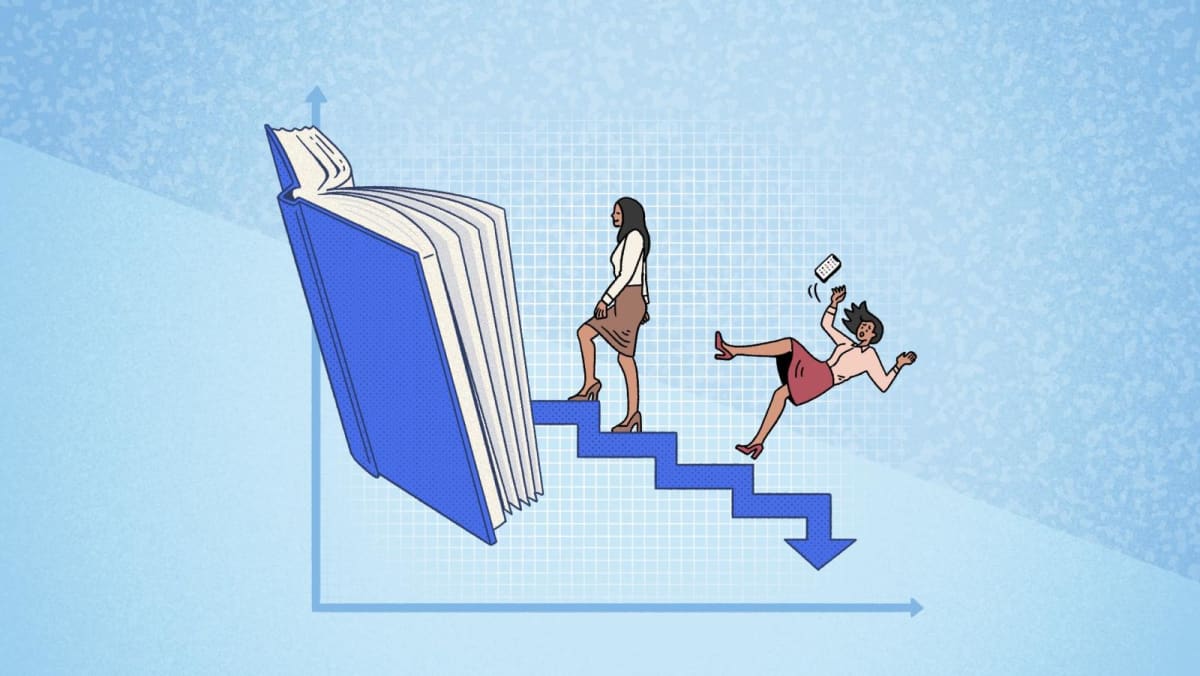At work, Mr Ng Jing Feng has had to spend hours rewriting poorly worded reports produced by his colleagues.
As part of his role as a programme executive in the social services sector, Mr Ng edits many documents, such as incident reports and Standard Operating Procedure documents.
“Not using proper terms for incident reports resulted in confusion, causing staff to spend a lot of time clarifying things,” said the 41-year-old.
“Misunderstandings have happened when communication to our beneficiaries was not properly handled, requiring us to put in effort into damage control, and this has caused anxiety for our clients.”
Meanwhile, director in media and communications Fiona Smith sometimes receives proposal decks from vendors riddled with grammatical errors and spelling mistakes.
This made the companies look unprofessional, and as a result, made her more hesitant to hire them.
“We could still have asked them to present their ideas in person or over a video call, however this would not have been an effective use of time,” said Ms Smith, 42.
Their experiences reflect how poor communication, caused by substandard literacy skills, is a problem that is apparently all too common in Singapore.
A recent study by the Organisation for Economic Co-operation and Development’s (OECD) Programme for the International Assessment of Adult Competencies (PIAAC) revealed that Singapore’s adult literacy proficiency is below the OECD average.
In Singapore, literacy in adults declines sharply after 35 years old, the study found, and the downward trend continues as adults age. Singaporean adults aged 55 to 65 are in 27th place – out of 31 countries – when it comes to literacy skills.
This stands in sharp contrast to the literacy skills demonstrated by Singaporean students. The country’s 15-year-olds emerged as top performers for reading in the OECD’s Programme for International Student Assessment 2022.
The implications of this trend – Singaporeans losing their literacy skills once they leave school – are far-reaching, experts said. For example, decreased literacy can limit individuals’ ability to meet the demands of increasingly complex workplaces, said Dr Annabel Chen from Nanyang Technological University (NTU).
“Many jobs require strong reading, comprehension and problem-solving skills, and adults with lower literacy levels may struggle to adapt to new roles, reducing their employability,” said the director of NTU’s Centre for Research and Development in Learning.
She added that they adults with poor literacy could also struggle with understanding medical instructions, managing finances, or completing essential paperwork, leading to increased reliance on social support services which will strain the system.
Eventually, the trend might have ripple effects on future generations, as parents with lower literacy levels may struggle to effectively support their children’s education, perpetuating a cycle of limited literacy, said Dr Chen.
On the flip side, adults who have maintained their literacy skills by reading regularly say the benefits go far beyond simply being able to understand documents or medical instructions.
A senior director in the financial services sector, Ms Jasmine Gunaratnam, 40, said that reading fiction as well as non-fiction titles about history, politics and current affairs has granted her “the gift of understanding humanity”.
“Your general knowledge is better and it offers you insight to manage your work with others. Fiction helps you to appreciate the human condition too.
“It allows you to understand how psychology works, helping with relationship management and conflict resolution because you are exploring different perspectives all the time,” she said.
Ms Angeline Ng, 44, a senior marketing manager, agreed that reading historical fiction helps her understand the history, politics and economics of different countries.
“My role involves Southeast Asia, India and other parts of Asia Pacific. So it does help me understand a little bit more of the cultures and personalities of the people I deal with (at work),” she said.
Public servant Yvonne Huang, 42, enjoys reading about climate change and foreign economies, which has not only enriched her knowledge of the world, but also helped her at work.
During meetings, she raises examples from overseas to share what Singaporeans can learn and apply from them.
“A good book can really open up your mind and show you new perspectives,” she said.
